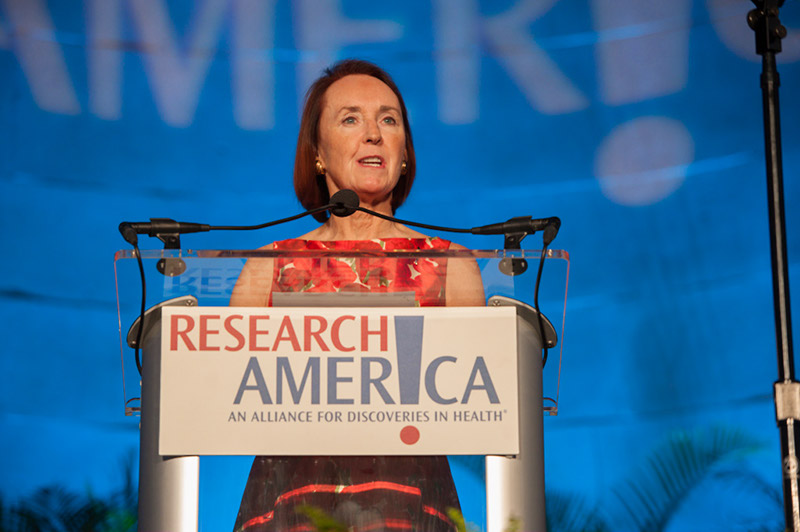Preparation and Innovation

Dear Research Advocate,
As the COVID-19 pandemic persists, it continues to pose new challenges and questions, including for the research community. A top priority is to better understand Long COVID. A CDC study released this week, “Post–COVID Conditions Among Adult COVID-19 Survivors,” found approximately 1 in 5 adult COVID-19 survivors “have a health condition that might be related to previous COVID-19 illness.“ The study covered cases from the beginning of the pandemic through November 2021, right before the Omicron wave.
In order to better prevent and treat Long COVID, NIH created the RECOVER Initiative, bringing together patients, caregivers, clinicians, community leaders, and scientists from across the nation. It’s actively seeking volunteers to get involved – both those who have had COVID-19 and those who have not. Consider volunteering.
On the Hill: The uncertainty surrounding Long COVID is just one example of the need for continued pandemic-related funding. Yet, as Congress prepares to leave Washington for the Memorial Day recess, the Senate has failed to make progress on moving supplemental funding legislation urgently needed to restock the supply of vaccines, testing, and treatments as new COVID-19 cases soar across the country. Research!America recently released a briefing paper to Congress making the case for this supplemental funding.
Please use this editable email to reach out to your representatives to urge them to move swiftly on additional pandemic preparedness measures.
Bipartisan Innovation Act: Some progress is being made on the forward-looking Bipartisan Innovation Act (formerly known as “USICA” in the Senate and the “America Competes Act” in the House) as conferees and their staff meet informally to work out differences between the two chambers. House Speaker Nancy Pelosi (D-CA) said she hopes Congress will pass the legislation before the July 4 holiday although the August recess is considered a more realistic goal. Punchbowl News leaked the “crosswalk,” the detailed list of provisions conferees must work through to produce a conference report for final passage.
ARPA-H Moves Closer to Launch: The Administration made progress this week in standing up the Advanced Research Project Agency for Health (ARPA-H). HHS Secretary Xavier Becerra announced the formal establishment of ARPA-H “as an independent entity within the National Institutes of Health” and the appointment of Adam H. Russell, DPhil, a former DARPA program manager, as acting deputy director.
ARPA-H will serve as a health innovation incubator, intended to advance high-risk, high-reward breakthroughs in health, including – as Sec. Becerra noted, “the prevention, detection, and treatment of diseases such as cancer, Alzheimer’s, and diabetes.”
Ways to Improve Representation in Clinical Trials: Last week, the National Academy of Sciences published a key report, “Improving Representation In Clinical Trials and Research.” While there has been an increased commitment to diversity in clinical trials, and strides have been made in some areas, the report shows there is still a long way to go to appropriately include underrepresented groups.
The Committee who led the study articulated a clear vision for equitable research: “matching the self-reported demographics of those enrolled in clinical trials and clinical research to the demographic characteristics of the population affected by the particular illness or condition under study.”
The study also makes specific recommendations on how representation can be achieved in research and why it is so critical to the future of research. If you don’t have time to look at the full report, an article in Fierce Biotech highlights some key findings.
Countering Misinformation: The Association for Psychological Science has released a report showing there is a psychological science to combatting misinformation. It showed that “prebunking” (encouraging a more skeptical consumption of media), debunking, and making the right decisions easier to make, can help in the fight against misinformation.
Alliance Discussion Update: We have rescheduled our conversation with Patroski Lawson, Chief Executive Officer of the KPM Group DC, on equity in mental health care access and its importance. Please register for the new date and time, June 22 at 2 p.m. ET.
Upcoming Alliance Discussion: Join us on Monday, June 6, at 2 p.m. ET to hear from Alex Keenan, Democratic Staff Director of the Senate Appropriations Labor, HHS, and Education Subcommittee, for an update on where we are in the FY23 appropriations process.
Stay well, stay safe, and stay connected.
Mary Woolley




